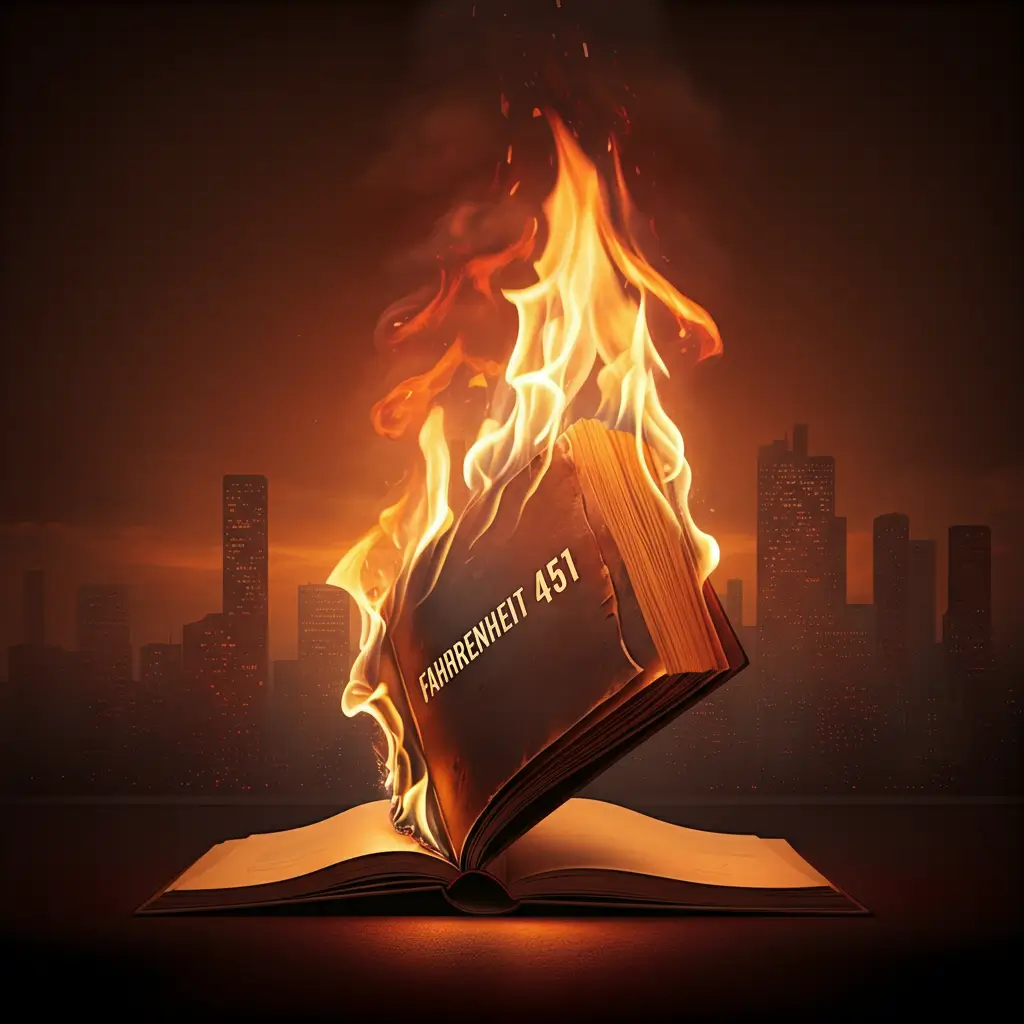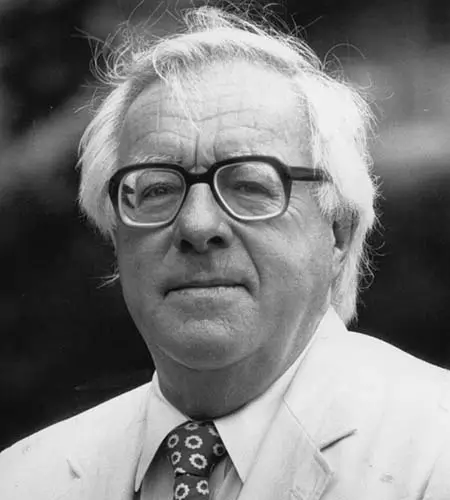
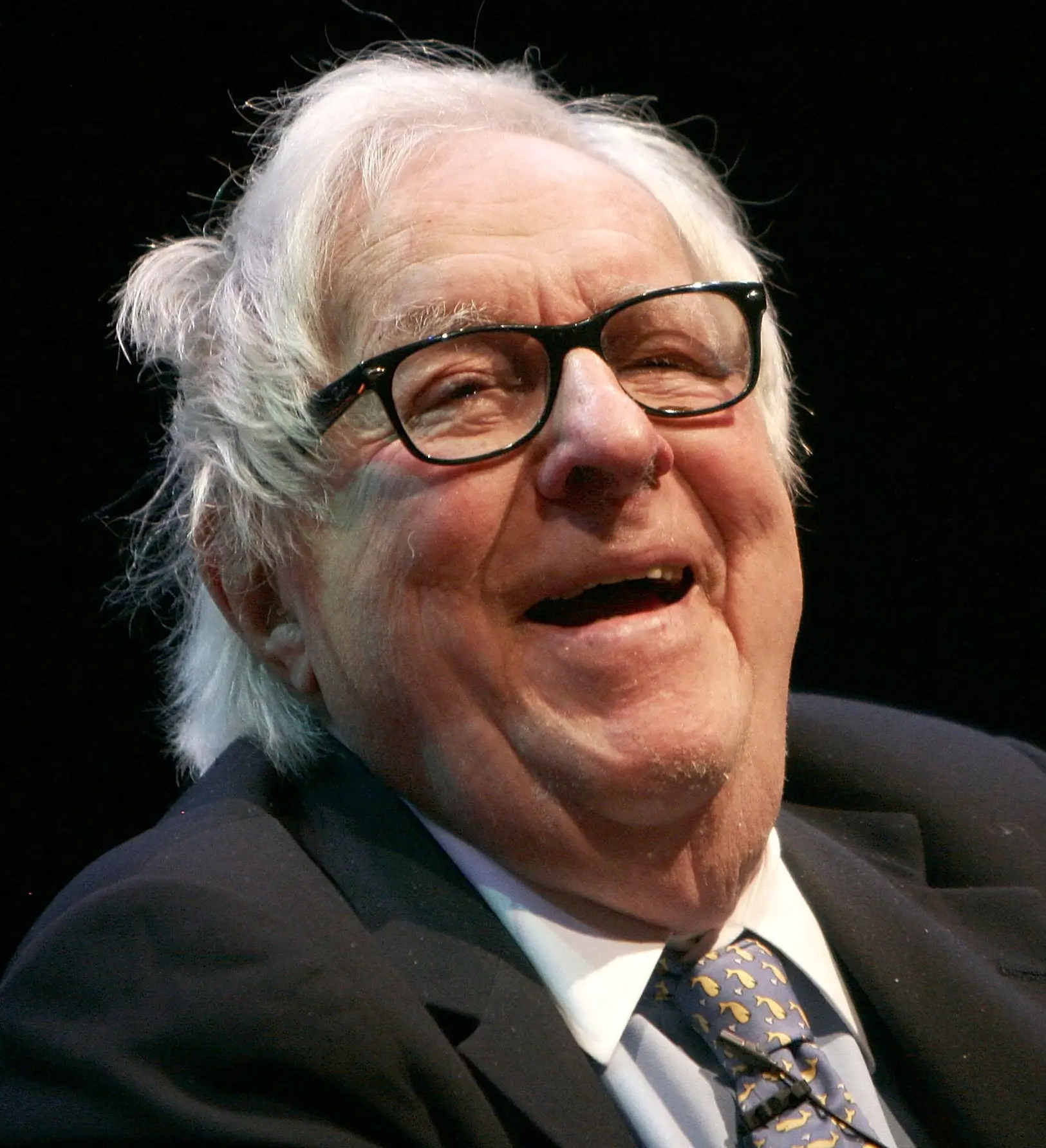
Ray Bradbury Biography
Ray Bradbury (1920–2012) was a celebrated American author known for his fantasy and horror works, though he resisted being labeled a science fiction writer. His best-known novel, Fahrenheit 451, is a classic exploration of censorship and conformity, and his other notable works include The Martian Chronicles and Something Wicked This Way Comes. A prolific writer, Bradbury published over 30 books, 600 short stories, and numerous screenplays, essays, and poems throughout his career. Despite financial struggles early on, he achieved tremendous success and influenced countless readers and writers. Bradbury passed away at the age of 91, leaving behind a legacy as one of the most influential literary figures of the 21st century.
INTRODUCTION
Introduction to Ray Bradbury and Fahrenheit 451
Ray Bradbury stands as one of the most celebrated authors in the realm of speculative fiction, crafting stories that are both imaginative and thought-provoking. Among his most iconic works, Fahrenheit 451, published in 1953, continues to resonate with readers across generations. Set in a dystopian society where books are banned and “firemen” burn any that are found, the novel offers a chilling commentary on censorship, conformity, and the power of free thought.
If you’re a book lover, literature student, or educator eager to explore themes of intellectual freedom and societal control, this blog uncovers the intricate layers of Bradbury’s masterpiece. From its compelling characters to its enduring relevance, we’ll take a closer look at the heart of Fahrenheit 451. Plus, if you’re looking for a Fahrenheit 451 PDF to download for educational or personal explorations, we’ve got you covered.
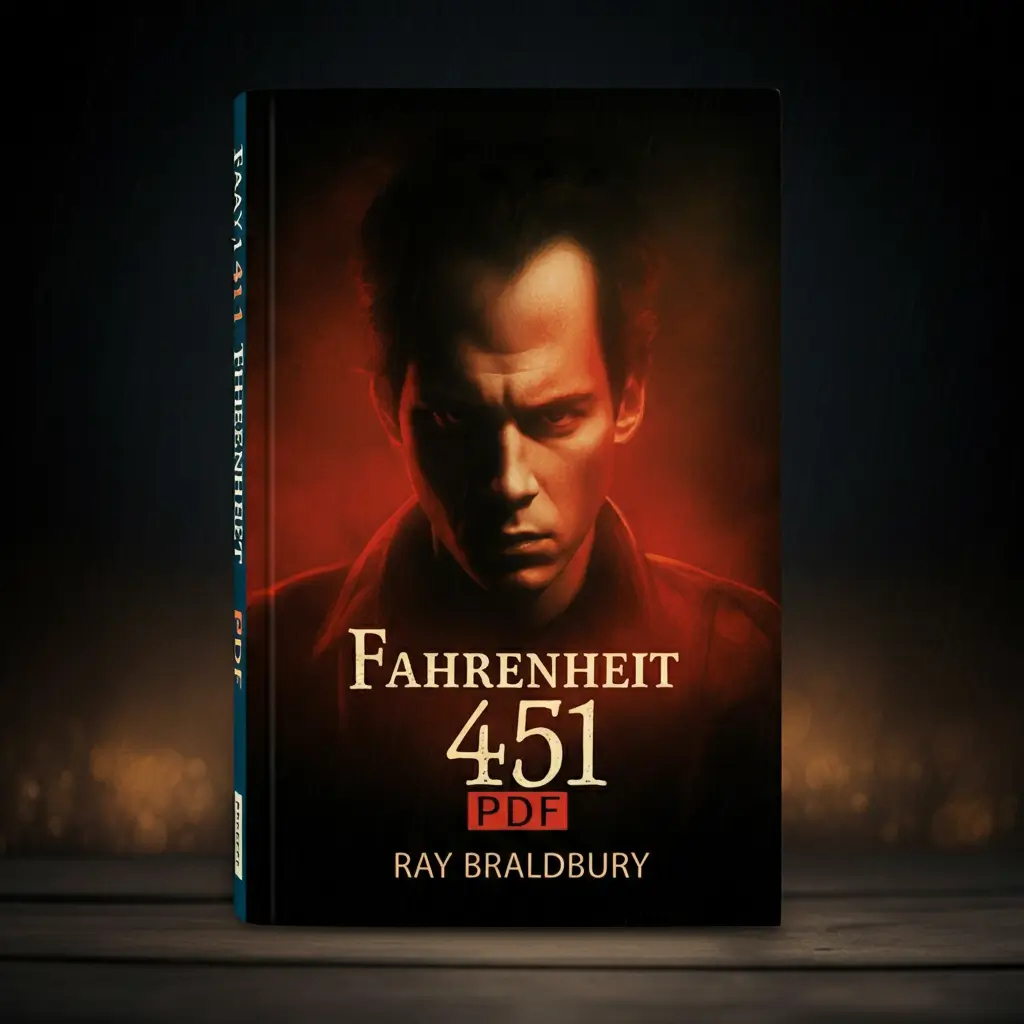
Synopsis and Themes
A Brief Synopsis of Fahrenheit 451
At its core, Fahrenheit 451 tells the story of Guy Montag, a fireman whose job isn’t to extinguish fires but to ignite them, specifically on books. Living in a dystopian future where critical thinking is suppressed, Montag begins to question his role and society’s values after meeting Clarisse, a curious and free-spirited teenager.
His inner conflict deepens as he secretly reads a book, setting off a chain of events that challenge his way of life and put him at odds with the government. Themes of censorship, the influence of technology, and the cost of ignorance unfold through Montag’s transformation from a passive participant in society’s suppression to a defiant seeker of truth.
Key Themes Explored

01
Censorship and Intellectual Freedom
Book burning represents the destruction of knowledge and creativity. Bradbury highlights the risks of silencing diverse ideas and warns against authoritarianism.

02
The Danger of Technology Overload
Through immersive wall-to-wall screens and seashell-like devices that distract citizens, Bradbury critiques how technology can dull critical thinking and foster superficial connections.

03
Conformity vs. Individuality
Society in Fahrenheit 451 thrives on sameness, discouraging independent thought. Montag’s rebellion serves as a powerful reminder of the importance of individuality in creating meaningful change.
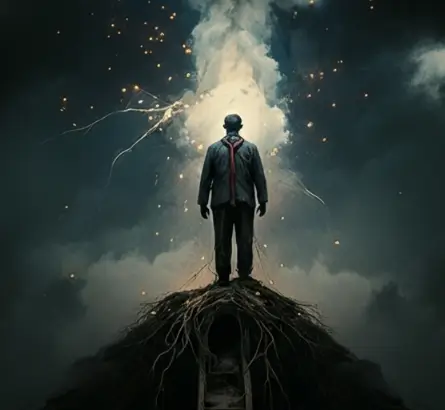
04
The Destructive Power of Ignorance
The novel highlights the consequences of a society that prioritizes pleasure and distractions over education and awareness, leaving its citizens vulnerable to manipulation.

Download the PDF of Fahrenheit 451
Are you looking for a digital copy of Fahrenheit 451 to read or reference? While we encourage supporting authors by purchasing their works, there are often free, educational options available through libraries and public repositories.
A PDF of Fahrenheit 451 can serve as a valuable tool for educators initiating classroom discussions, for students analyzing its themes, or for readers simply eager to explore an essential piece of literature.
Analysis of Characters
One of the strengths of Fahrenheit 451 lies in its deeply nuanced characters, who bring the dystopian themes of the novel to life.
Guy Montag
The protagonist, Montag, undergoes a powerful transformation throughout the novel. Initially a loyal fireman, his awakening begins with curiosity sparked by his interactions with Clarisse and deepens with the profound loss of meaning in his own life. Montag embodies the struggle between conformity and the pursuit of truth.
Clarisse McClellan
Clarisse, a young, inquisitive neighbor, represents the antithesis of the numbed society in which Montag lives. Her curiosity and ability to perceive the beauty of the world challenge Montag’s worldview, igniting his internal rebellion. conformity and the pursuit of truth.
Mildred Montag
Montag’s wife, Mildred, serves as a tragic example of society’s indoctrination. Absorbed in her virtual world through “parlor walls” and indifferent to reality, she highlights the numbing power of technology and the toll it takes on human connection.
Captain Beatty
The fire chief and antagonist, Beatty is a paradoxical figure. While he is deeply knowledgeable about books, he passionately defends the society that seeks to destroy them. His character reveals the dangers of intellectual hypocrisy and the misuse of authority.
Fahrenheit 451’s Enduring Relevance and Impact
More than 70 years after its publication, Fahrenheit 451 still resonates in today’s world. With ongoing debates around censorship, freedom of speech, and the effects of media on critical thinking, Bradbury’s questions are as timely as ever.
Whether discussing banned books in schools or addressing society’s growing dependence on technology, the novel provides endless insights. Its warning about valuing distraction over meaningful engagement serves as a wake-up call in the digital age.
Modern adaptations of the novel, including films and stage plays, continue to bring its themes to new audiences, proving its cultural and educational significance. The fact that Fahrenheit 451 remains so widely studied and discussed highlights its vital place in literature and society.
Discussion Questions and Further Reading
To get the most out of your reading experience, consider these discussion questions and explore complementary literature.
Thought-Provoking Discussion Questions
- How does Bradbury portray the impact of censorship on society and individuals?
- What does Montag’s internal conflict between conformity and rebellion teach us about personal growth?
- Are there parallels between the immersive technology in Fahrenheit 451 and today’s digital distractions?
- How do the characters of Clarisse and Mildred serve as contrasting influences on Montag?
Further Reading Suggestions
- 1984 by George Orwell: Another chilling dystopian novel exploring themes of control and surveillance.
- Brave New World by Aldous Huxley: A futuristic take on societal conditioning and the loss of individuality.
- The Giver by Lois Lowry: A powerful exploration of memory, choice, and freedom in a controlled society.
Keep the Fire of Knowledge Alive
Fahrenheit 451 isn’t just a book; it’s a call to action. Bradbury’s warnings about censorship, apathy, and distraction serve as a reminder to cherish intellectual freedom and the transformative power of knowledge.
Whether you’re a student analyzing its rich themes or a book lover revisiting its timeless message, this novel will leave an indelible mark on your perspective.
Dive into the world of Fahrenheit 451 today. For further reading, engaging discussions, or access to a PDF of this literary classic, start by exploring our Website. Together, we can safeguard the flames of human curiosity and creativity.
-

Ray Bradbury Biography
Ray Bradbury stands as one of the most iconic and influential authors…
-
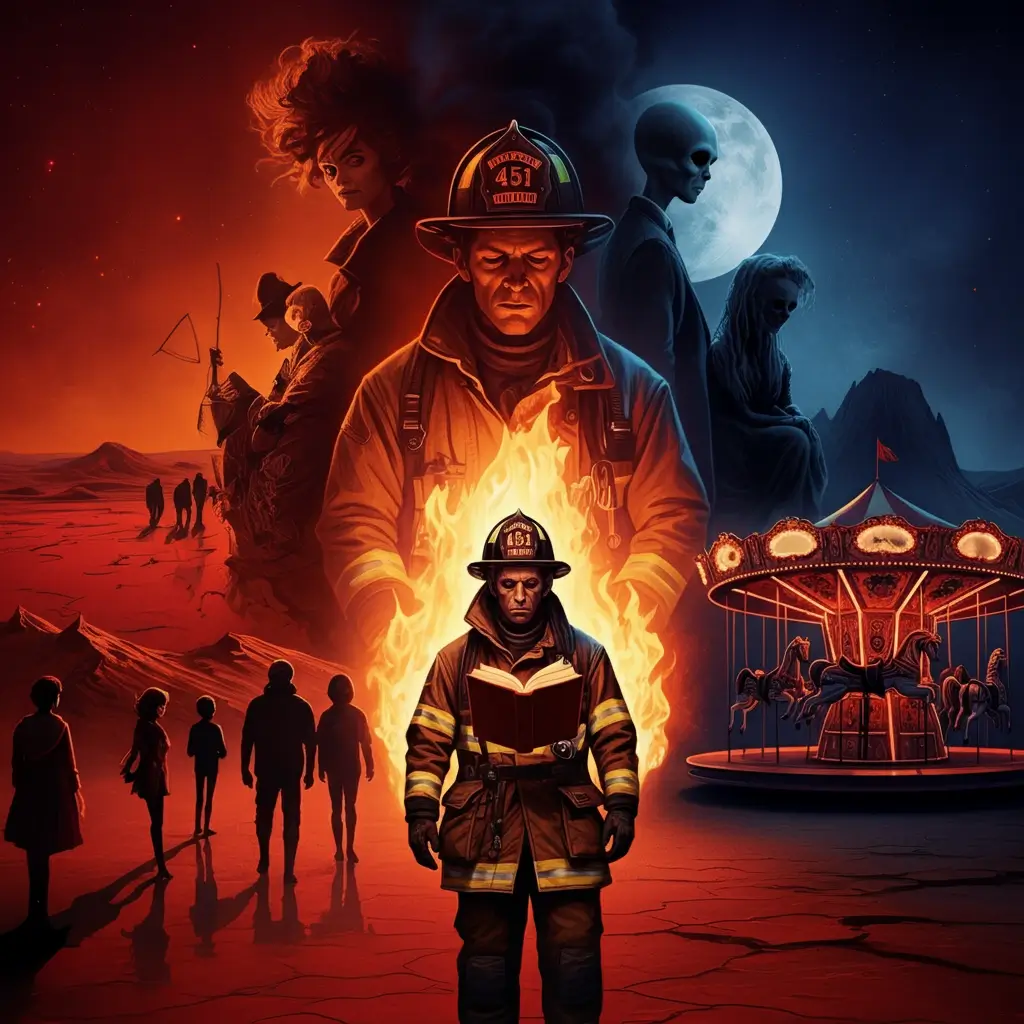
Ray Bradbury Short Stories
Ray Bradbury is a name synonymous with imaginative storytelling and unparalleled literary…
-
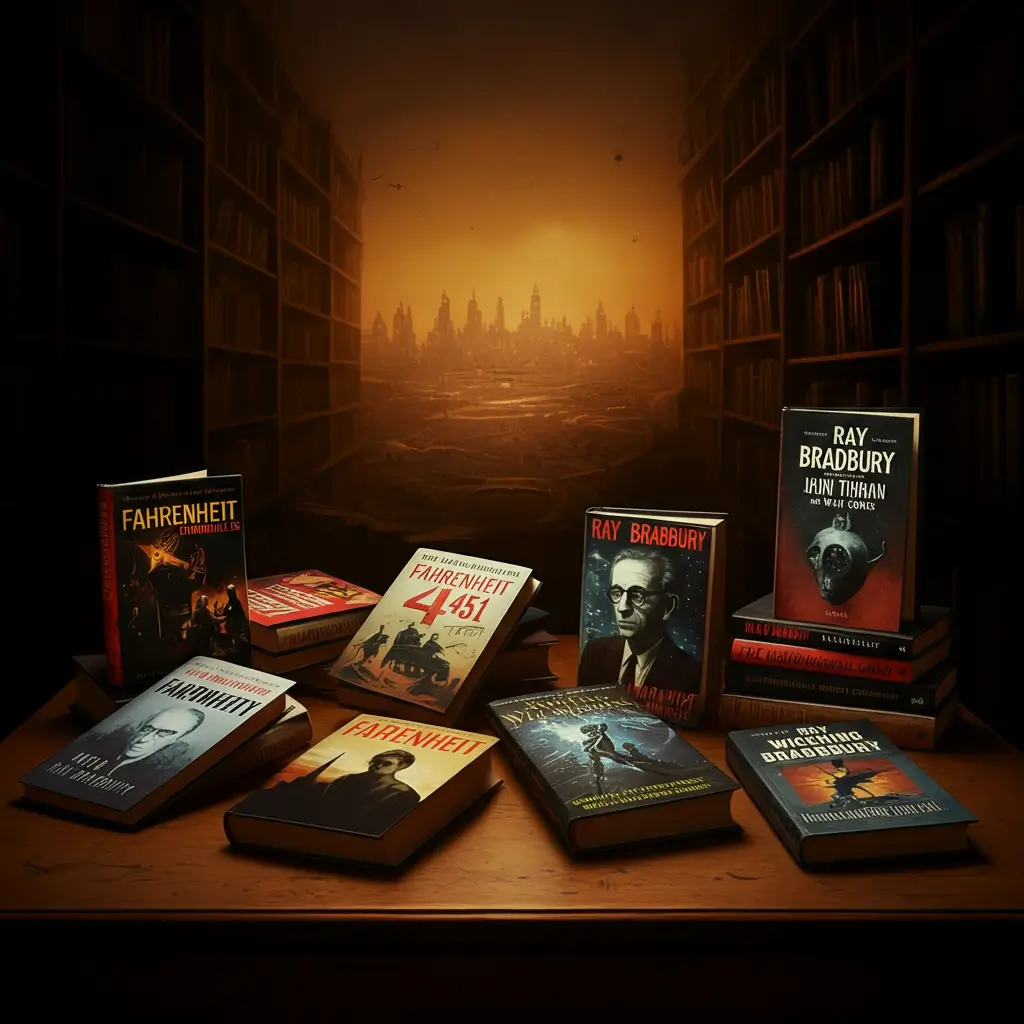
Ray Bradbury Books
Ray Bradbury is an enduring icon in the world of science fiction…
-
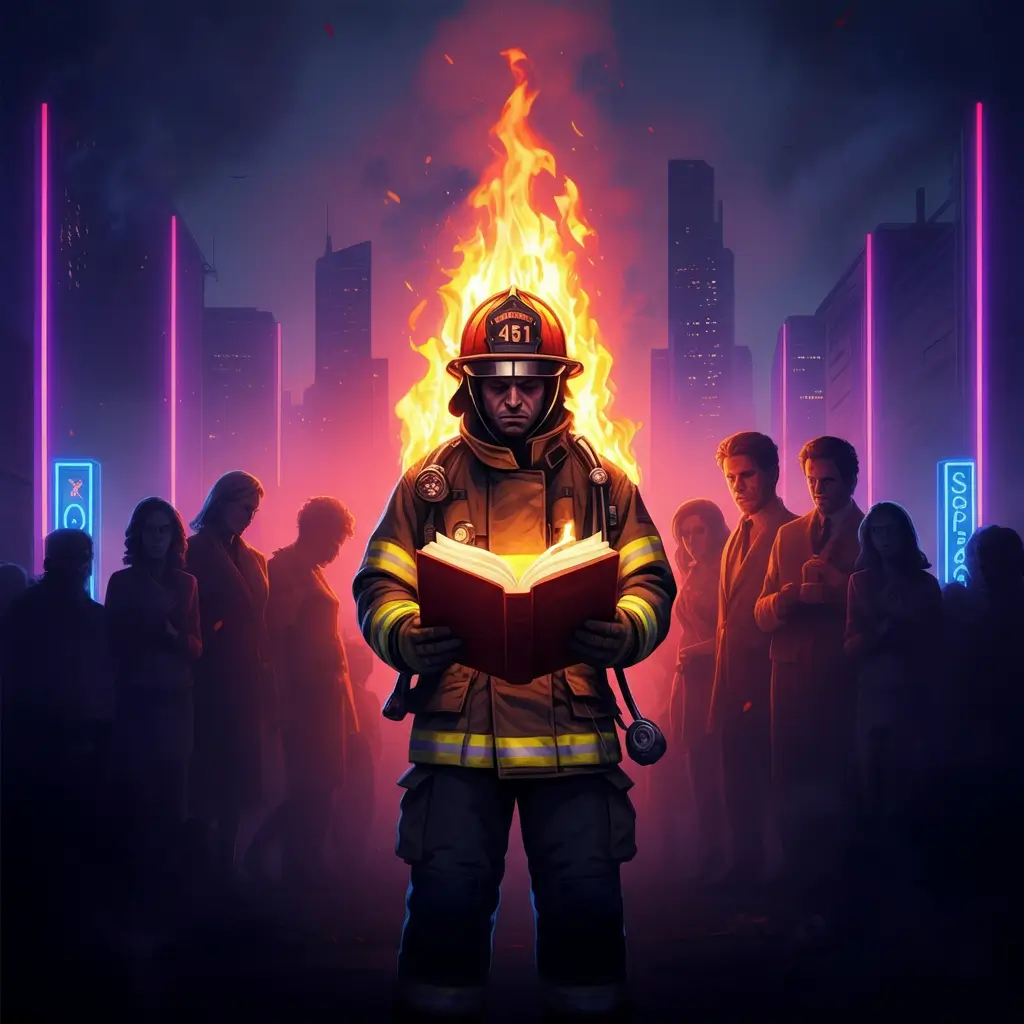
Fahrenheit 451 Quotes
Ray Bradbury’s Fahrenheit 451 is not just a story about censorship; it’s…
-
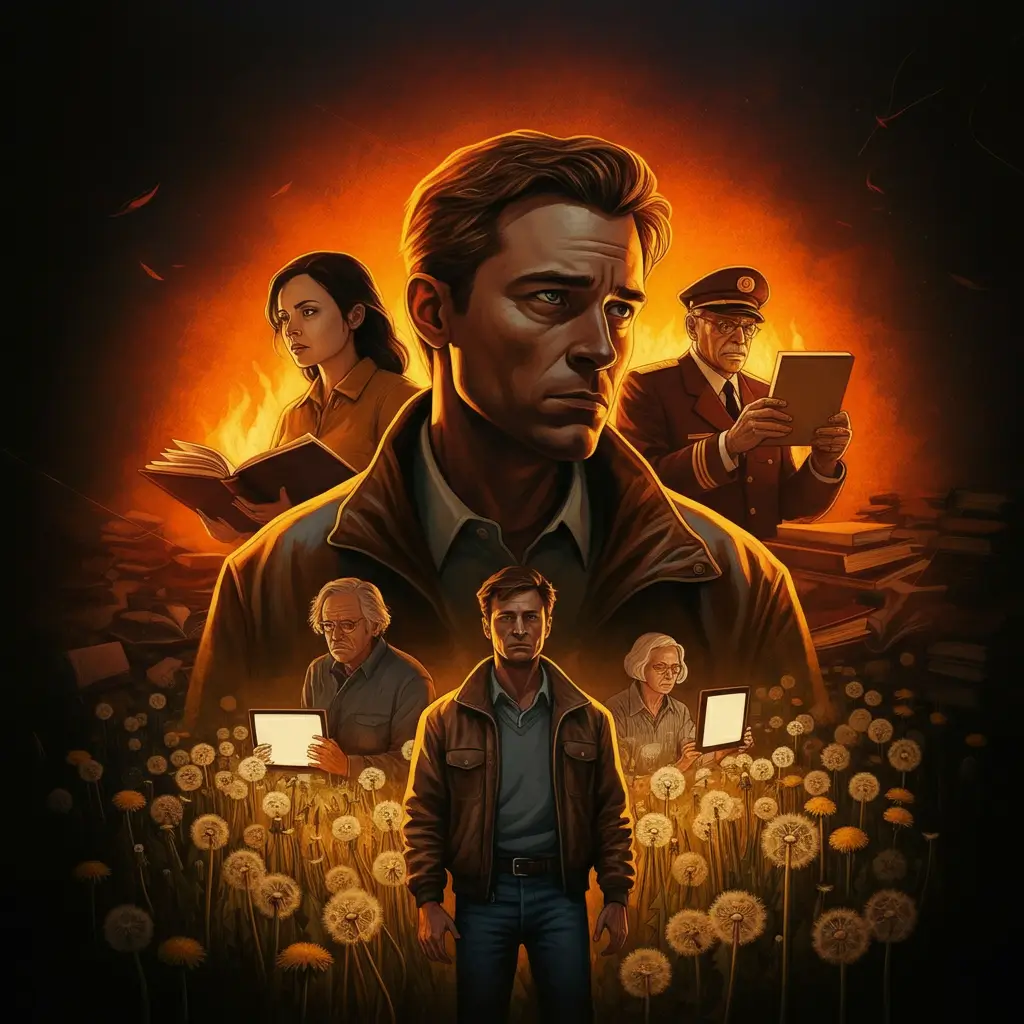
Fahrenheit 451 Characters
Ray Bradbury’s timeless novel Fahrenheit 451 has captured the imagination of readers…
-
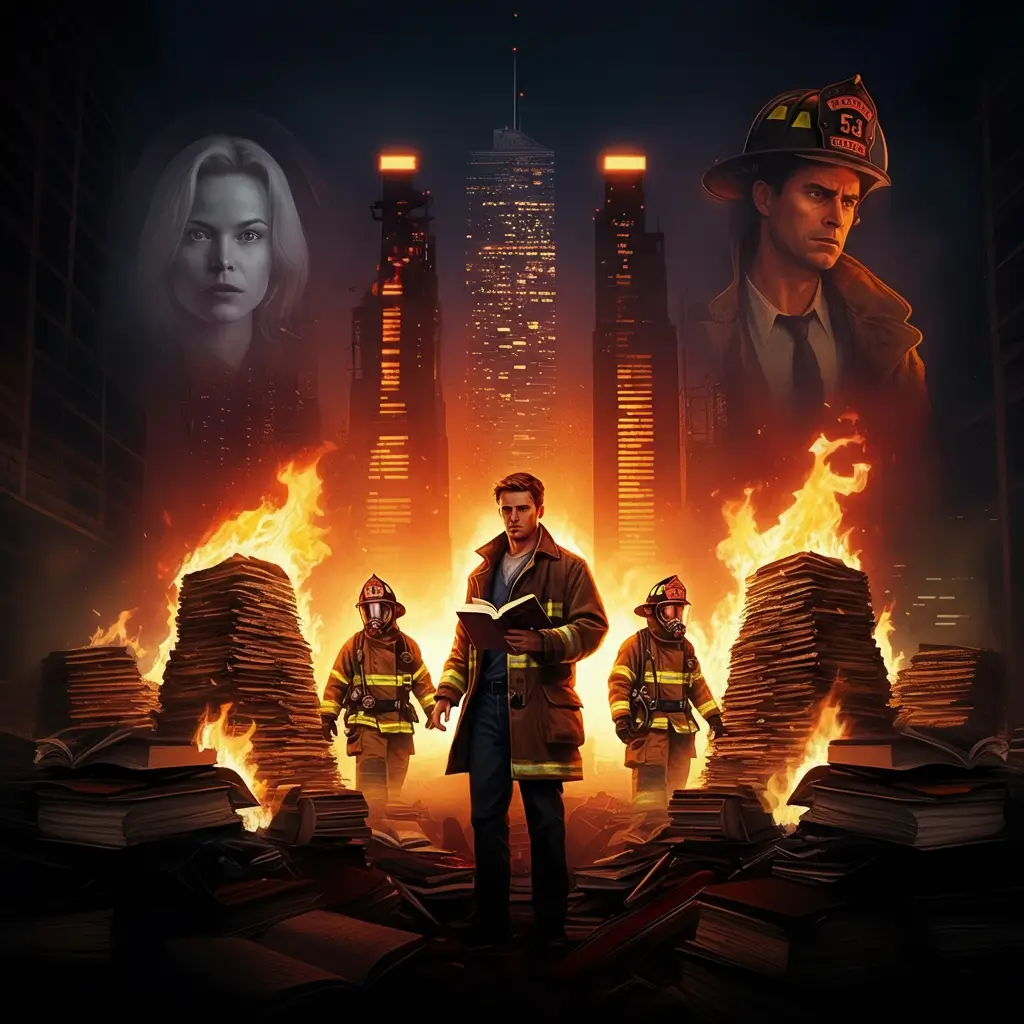
Fahrenheit 451 Summary
Ever wondered what happens when society decides that books are dangerous, and…
